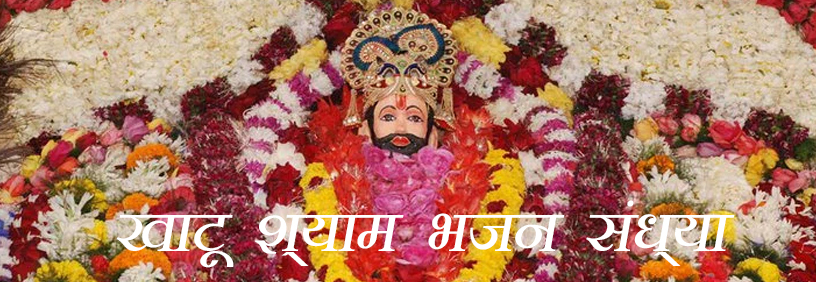
At GodSadhana, we are dedicated to creating a spiritually enriching Khatu Shyam Bhajan Sandhya that celebrates the divine essence of Lord Khatu Shyam. Here’s what we will do to ensure a memorable and uplifting experience for all participants:
- Event Planning and Coordination
- Venue Selection: We will assist in choosing a suitable venue that accommodates participants comfortably, providing a serene environment conducive to devotion.
- Logistical Management: Our team will handle all logistical aspects, including seating arrangements, sound systems, and lighting to create an inviting atmosphere.
- Devotional Music Arrangement
- Talented Musicians: We will engage skilled musicians and vocalists who specialize in devotional music, ensuring a captivating musical experience.
- Bhajan Selection: A diverse repertoire of Bhajans dedicated to Lord Khatu Shyam will be curated, including traditional and contemporary songs to appeal to all attendees.
- Spiritual Narration and Insights
- Facilitator Engagement: Experienced facilitators will share stories and teachings related to Lord Khatu Shyam, providing context and deeper understanding of His divine attributes and leelas.
- Thematic Focus: Each session will focus on specific themes related to devotion, faith, and the miracles of Lord Khatu Shyam.
- Interactive Elements
- Community Participation: We will encourage attendees to participate actively in singing, fostering a sense of unity and shared devotion.
- Q&A Sessions: Opportunities for participants to ask questions or share personal experiences related to their devotion to Lord Khatu Shyam will be included.
- Creating a Sacred Atmosphere
- Decor and Ambiance: The venue will be adorned with flowers, lights, and images of Lord Khatu Shyam, creating a visually appealing and spiritually uplifting setting.
- Prasad and Offerings: Arrangements for prasad (blessed food) and other offerings will be made to enhance the devotional experience.
- Promotion and Outreach
- Marketing Support: We will promote the Bhajan Sandhya through various channels, including social media, community newsletters, and local announcements, ensuring maximum participation.
- Registration Management: We will handle participant registrations and provide timely communication regarding event details, schedule, and any requirements.
- Post-Event Follow-Up
- Feedback Collection: After the event, we will gather feedback from participants to understand their experiences and improve future Bhajan Sandhya sessions.
- Continued Engagement: We will provide resources for participants to continue their spiritual journey, including information on future events and devotional practices.
Join Us
Let us come together to celebrate the love and devotion for Lord Khatu Shyam through our meticulously organized Bhajan Sandhya. For more information on how we can assist you in organizing this divine event, please contact us. Experience the joy of collective devotion and the blessings of Lord Khatu Shyam!
